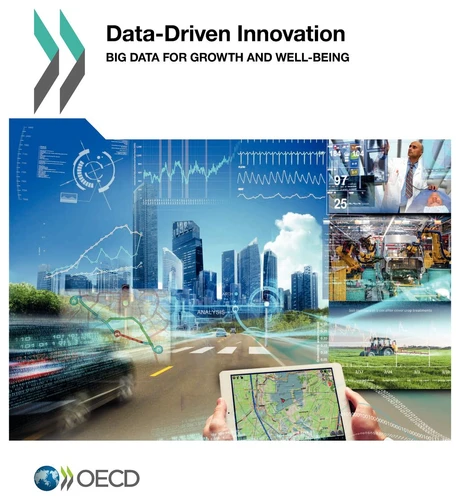Data-driven innovation. Big data for growth and well-being
Par :Formats :
Définitivement indisponible
Cet article ne peut plus être commandé sur notre site (ouvrage épuisé ou plus commercialisé). Il se peut néanmoins que l'éditeur imprime une nouvelle édition de cet ouvrage à l'avenir. Nous vous invitons donc à revenir périodiquement sur notre site.
- Poids1.092 kg
- Dimensions21,2 cm × 28,0 cm × 2,3 cm
- ISBN978-92-64-22934-1
- EAN9789264229341
- Date de parution12/03/2016
- ÉditeurOCDE
Résumé
Today, the generation and use of huge volumes of data are redefining our " intelligence " capacity and our social and economic landscapes, spurring new industries, processes and products, and creating significant competitive advantages. In this sense, data-driven innovation (DDI) has become a key pillar of 21st-century growth, with the potential to significantly enhance productivity, resource efficiency, economic competitiveness, and social well-being.
Greater access to and use of data create a wide array of impacts and policy challenges, ranging from privacy and consumer protection to open access issues and measurement concerns, across public and private health, legal and science domains. This report aims to improve the evidence base on the role of DDI for promoting growth and well-being, and provide policy guidance on how to maximise the benefits of DDI and mitigate the associated economic and societal risks.
Greater access to and use of data create a wide array of impacts and policy challenges, ranging from privacy and consumer protection to open access issues and measurement concerns, across public and private health, legal and science domains. This report aims to improve the evidence base on the role of DDI for promoting growth and well-being, and provide policy guidance on how to maximise the benefits of DDI and mitigate the associated economic and societal risks.
Today, the generation and use of huge volumes of data are redefining our " intelligence " capacity and our social and economic landscapes, spurring new industries, processes and products, and creating significant competitive advantages. In this sense, data-driven innovation (DDI) has become a key pillar of 21st-century growth, with the potential to significantly enhance productivity, resource efficiency, economic competitiveness, and social well-being.
Greater access to and use of data create a wide array of impacts and policy challenges, ranging from privacy and consumer protection to open access issues and measurement concerns, across public and private health, legal and science domains. This report aims to improve the evidence base on the role of DDI for promoting growth and well-being, and provide policy guidance on how to maximise the benefits of DDI and mitigate the associated economic and societal risks.
Greater access to and use of data create a wide array of impacts and policy challenges, ranging from privacy and consumer protection to open access issues and measurement concerns, across public and private health, legal and science domains. This report aims to improve the evidence base on the role of DDI for promoting growth and well-being, and provide policy guidance on how to maximise the benefits of DDI and mitigate the associated economic and societal risks.





















